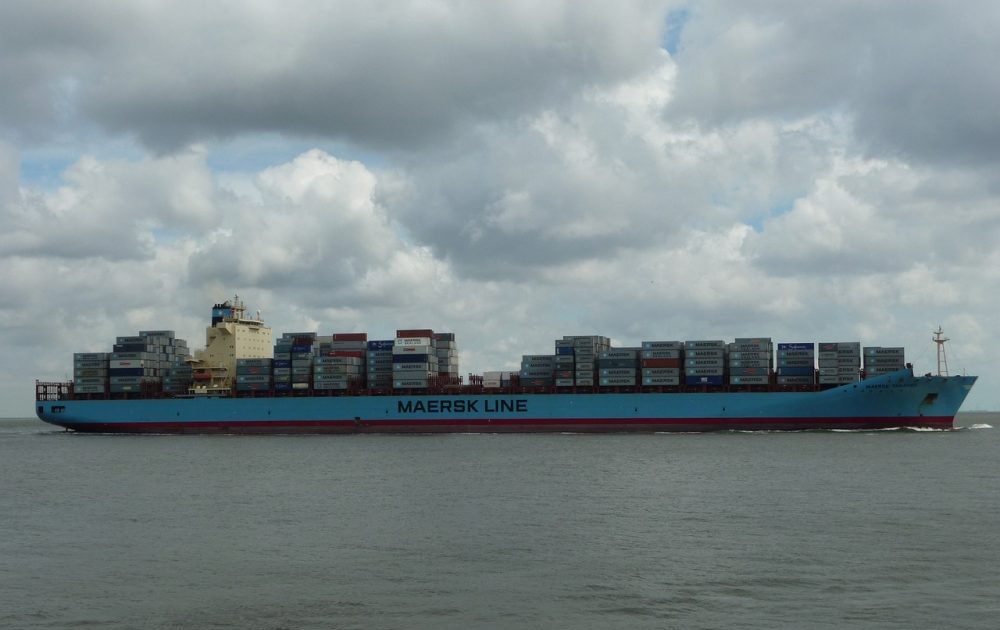One of the world’s largest shipping companies by fleet size, AP Moller Maersk, has halted purchase of container ships that are unable to totally eliminate carbon emissions, a top company official said late April 20.
“Going forward, we will only order ships which have zero carbon emission capability,” managing director of the company’s Singapore arm, Rene Piil Pedersen told S&P Global Platts on the sidelines of the Marine Money conference held in Singapore on April 20.
This means that even though these new ships will have dual fuel engine capability and can use diesel when zero carbon emitting fuels are unavailable, this will only be opted as a last resort.
“The diesel fuel [in new build ships] will only be a backup if availability of zero carbon fuels is not there,” Pedersen said.
The halt in purchase does not include ships for which the order has already been placed, he said, but added that the company’s orderbook as a percentage of total fleet size is very small.
Maersk is now focusing on innovative supply chain solutions, integrating inland services and logistics along with decarbonization of ocean transportation, he said.
“It’s a chicken and egg situation where we can identify the technology, but the infrastructure to back it up is a challenge,” Pedersen said.
His comments assume significance because the company has around 700 container ships, including both own and operated, which consume around 10 million mt of fuel annually and has a potential of around 30 million mt of carbon emissions.
What is put in the engine and how it is designed is a very big challenge, he said, and many participants at the conference said cost effective solutions to meet it will be key.
Owners may not consider it viable to pay 20%-25% higher for a new ship just because it does not have any carbon emissions, but Joshua Politis, deputy managing partner at Transport Capital pointed out that at present, there is a lot of credit available chasing very few opportunities.
Order book for ships with dual fueled engines is at present dominated by “very large players” in the maritime industry, but for decarbonization to succeed, medium-sized owners should be brought onboard this initiative as they control a third of the world’s merchant fleet, Politis said.
Few months ago, Maersk ordered a 2,000 TEU container ship with zero carbon emission capability, that will run on dual fuels — methanol and diesel — and will be ready for operation by 2023.
“It is by no means a solution, but it is a start,” Pedersen said.
“We tested the methanol technology before opting it. Every technology has its advantages and disadvantages and in the next decade many technologies will be tested,” he said.
It is not just a case of picking up an alternative fuel to replace the traditional fossil fuels, they need to be tested properly because they will be used for the next 50-60 years, he added.
To meet its objective of being a zero carbon company by middle of the century, Maersk has so far reduced emissions by almost 46% compared with a 2008 baseline.
source:Platts
The post Maersk halts buying of ships without zero carbon capability appeared first on Global Cargo Insight.
Image by Joachim Druwe from Pixabay



